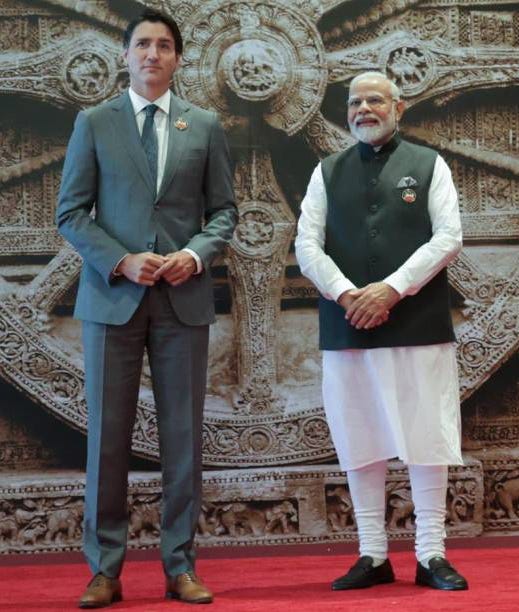Canada-India Conflict Grows
This is an unnecessary crisis
Canada-India tensions grew during the recent G20. But the bombshell Trudeau dropped yesterday in the House of Commons multiplied those tensions. The prime minister now alleges the government of India is involved in the June killing of Hardeep Singh Nijjar in British Columbia. The words Trudeau read in the House are carved in ambivalence, claiming that there are "credible allegations about a potential link." In short, there is no evidence. Later, he mentioned facts, but he has offered none.
One has to wonder why bring these tenuous allegations to light now? Why is the Trudeau government set on whipping up a crisis with an ally instead of waiting for evidence?
The Importance of India
The Canada-India friendship is important: Canada and India have a long-standing partnership dating back to 1947. It is anchored on shared parliamentary democratic values, and a close bond formed through trade, education, and cultural interaction.
Combined trade between the countries has increased steadily, reaching around $8.4 billion in 2020. This relationship bolsters both economies and creates business opportunities. Educational ties also bind Canada and India, with a high number of Indian students pursuing higher education in Canada – over 200,000 in 2020.
Cultural exchange is a critical aspect of the Canada-India relationship. The significant Indian diaspora in Canada adds to the cultural bond, as they actively partake in various cultural activities enhancing the plural aspect of Canadian society. This mutually beneficial friendship also aids in regional and global stability.
Enduring Tensions
India's Foreign Ministry emphatically denies Justin Trudeau's allegations. Someone is wrong or not telling the truth, or both. I don't know much about Prime Minister Modi's habits and relationship with truth, but I do know that Justin Trudeau is divorced from it. So, Canadians should wisely wait to see evidence instead of potential links.
There is some baggage between the Trudeaus and India. Ours is a prime minister who has donned blackface more times than he can remember, mocking people of colour and wearing turbans. Indians know this, and they saw Trudeau condescendingly dressed like a bad Bollywood character to attract their attention in the 2018 trip. Canadians may have forgotten about this but Indians have not.
In India, Canadians, and Liberals especially, have a reputation for sympathizing with Khalistan separatists, many of whom are violent terrorists. That perception is intergenerational: Pierre Trudeau had an opportunity to extradite at India's request the master mind of the murderous Air India attack, before the attack took place, but PET chose not to. The denial, which Indians see as sympathy, cost hundreds of lives.
And then there is the Trudeau alliance with Jagmeet Singh. Since 2013, Jagmeet Singh has been barred from travelling to India for his Khalistan sympathies. He holds the infamous privilege of being the first foreign legislator from a democratic county to be denied entry into the country.
Hardeep Singh Nijjar was a Khalistan nationalist, wanted in India. According to the National Post, "he came to Canada in 1997, and claimed refugee status, having used a false passport to enter the country. His refugee claim was rejected, but 11 days after that, he married a woman who sponsored him for immigration. That, too, was rejected, although Nijjar called himself a Canadian citizen, and Trudeau referred to him as such in the House of Commons on Monday."
So it appears that Nijjar was no angel. By the looks of it, he may have been one of those who brings to Canada hatred and animosities from overseas. But citizen or not, no sovereign country wants foreign operatives assassinating residents in its own soil. Canada is within its rights to decry such activity, if it were true.
With all these things in mind, let's return to the question posed above. Why does Trudeau choose to reveal these things now? Who gains from it? What do this week's events mean for the Trudeau government and for the Canadian political scene?
What does it all mean?
There are nine separate reasons I can think of for Trudeau to rush into condemning India:
Trudeau is in a slump. This is not a reference to opinion polls but to his mood, as I pointed out here last week. There is need to put him at the center of a hero narrative to bring him out of it and get it ready to fight in this new and crucial parliamentary session. The way the story is being cast, Trudeau is now the hero of democratic values, defender of our sovereignty and the Rule of Law, standing up against extra-judicial killings.
Keep reading with a 7-day free trial
Subscribe to Haultain Research to keep reading this post and get 7 days of free access to the full post archives.



